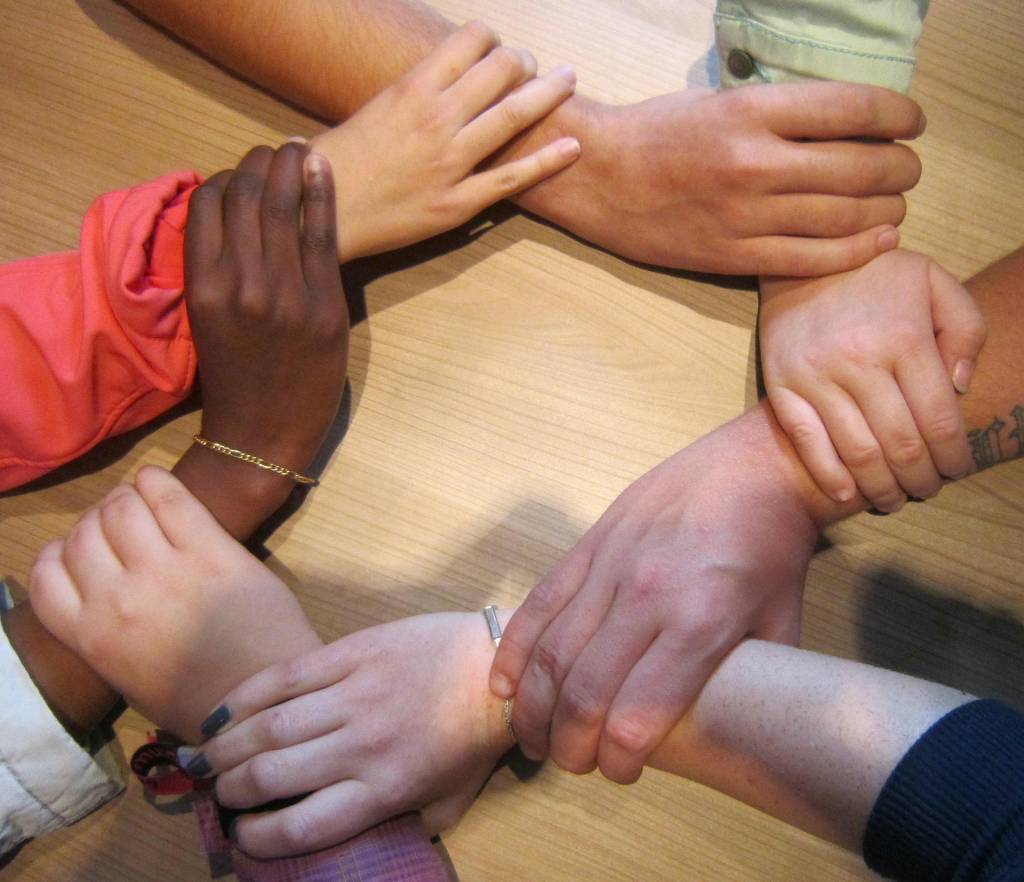
Latinos today make up a significant minority group in America, with almost 60 million Latinos living in the U.S., 18.5% of our country’s total population, according to the Census. 9% of the people living in Toledo are Latino. And like everyone else, Latinos struggle with mental health issues. NAMI Toledo’s blog interviewed Sabina Serratos, Executive Director of Adelante, Inc., The Latino and Community Resource Center, about the mental health issues affecting Toledo’s Latino community and what can be done to improve mental health services to the local Latino community.
1. According to a USA Today article, “Only 5.5% of U.S. psychologists say they’re able to administer mental health care services in Spanish…” Do you find there to be a language issue for Latinos seeking mental health services in the Toledo area?
Absolutely and it must change. Many Latino families who are open to seeking mental health services want to be able to communicate in their native language. It allows them to feel more comfortable when speaking to someone who can understand them completely. Our area lacks Spanish speaking mental health professionals which presents a huge barrier for the Latino community.
2. What, in your opinion, are the mental health issues Toledo’s Latino community has been
contending with the past few years? Are there particular mental illnesses Latinos are struggling with more than others?
Latino families are dealing with depression at an alarming rate. I became more aware of the stigma associated with seeking mental health services as a young professional while I was working at The University of Toledo. Being in the trenches at Adelante has also allowed me to see how our community fears seeking help when they feel sad or emotionally charged. The opiate crisis has had a tremendous impact on our people.
3. Do you feel Latinos suffer any racial prejudice with regard to mental health services in the Toledo area?
I feel that the Toledo area could do better when recruiting and hiring new staff in the mental health field. To be a bit direct in this area, I think that intentional training and recruitment for Latino, Spanish speaking mental health professionals should be a priority.
4. Does Toledo’s Latino community need more mental health resources in the part of Toledo
where it resides? If so, where would be good?
Yes. If I had to identify a specific location, I would say Adelante. Adelante is uniquely situated in between 43609 and 43605 area codes where the majority of Latino families live in Toledo. Additionally, Adelante is centrally located close to downtown Toledo, which is accessible to families on all sides of town.
5. Has NAMI Toledo helped Toledo’s Latino community cope with mental health issues? If so, how? Would you recommend NAMI do something more – if so, what exactly?
NAMI has been a great partner of Adelante over many years. Through [NAMI Toledo’s] family to family program, NAMI has impacted countless Latino families as they were learning to cope with anxiety and depression associated with the loss of loved ones. NAMI has also hosted an annual Latino Mental Health Summit which brings mental health professionals together to discuss the impact of mental health services, the latest trends in the profession and other key issues in the field.
There has been some dialogue on creating an event or some kind of avenue to target Latino clients/consumers/families in a way that helps them understand why addressing mental health issues is vital to them with the goal of eradicating the stigma that is associated with seeking mental health services. I look forward to seeing this type of event come to fruition.
6. Is there anything else you would like to tell us about Toledo’s Latino community and mentalhealth?
I feel strongly that it is time that the Mental Health professional career track is brought to the forefront as a much needed career path as well as a rewarding and fulfilling career. Society, in my opinion, seems to have lost its way when we talk about caring for basic human needs and the holistic development of the “person”. We have pushed the importance of establishing STEM careers (Science, Technology, Engineering and Math), which are certainly important as well, however, the dollar amount earnings of those careers are what students focus on and not what truly makes them feel whole, accomplished and content with their line of work. [This focus on STEM careers] has caused there to be negligence in pushing/advocating for other important careers such as those in the mental health field – social workers, therapists, etc.
I say all this to say that we need more social workers, we need more mental health counselors and we need more therapists. These folks are the ones who help a person deal with emotional trauma, hurt, pain, sadness, anger, etc. We don’t have enough of them because the profession is not presented in the positive way that it should be. My suggestion is to create a pipeline starting in high school, expose them to the “human” experiences of everyday life and establish scholarship opportunities for them to encourage them to stay the course into post-secondary education…
~

